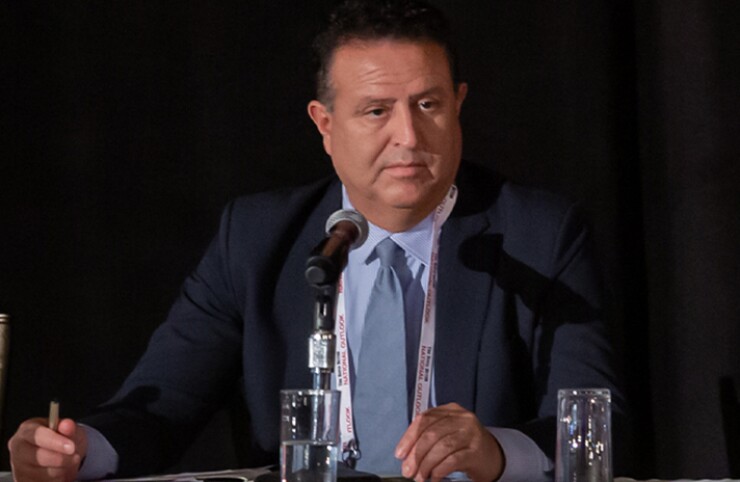
Unregistered municipal advisory activity by lawyers – particularly in affordable housing and "project-based" transactions – is an area of concern for the Securities and Exchange Commission's Office of Municipal Securities, that office's director said Wednesday.
SEC muni chief Dave Sanchez made those comments during the National Association of Bond Lawyers' annual conference being held in Washington this week. While his office is independent and not a part of the enforcement division, Sanchez has often used his public comments to
"Generally speaking we've been looking at unregistered municipal advisor activity and since I was part of writing the municipal advisor rule over a decade ago, lawyers have always been at the top of the list of complaints and that really hasn't changed," Sanchez said during an SEC-related panel discussion at the conference.
In particular, Sanchez cited affordable housing and some of the more "project-based" types of transactions as areas "where we are seeing … lawyers more openly engaging in structuring that might be problematic."
In relation to Sanchez's comments regarding unregistered municipal advisor activity and lawyers, Panel Chair Alice Ostdiek, a partner at Stradling Yocca Carlson & Rauth, said that particularly when a lawyer is in a situation where there isn't a municipal advisor on a deal, "your clients are going to look at you and say 'Oh, you're the expert…tell us how this would work, or what should we do here."
Ostdiek said that while the first words out of her mouth are "I'm not a financial advisor," clients will continue to press for information anyway on topics such as going to a bank versus doing a bond deal. While she tells clients that she can discuss the legal consequences of that but not the financial consequences, those conversations can be tricky to navigate, Ostdiek said.
Sanchez, citing his own prior experience as an attorney in private practice, acknowledged that lawyers in the situation Ostdiek described are going to feel pressure.
"But really at the end of the day, there's no answer other than you're just going to have to say 'I can tell you about the legal consequences not the financial consequences,'" he said, adding that, alternatively, some lawyers may feel comfortable giving general information because of the general information exclusion.
"And that requires a little bit of education," Sanchez said. "By the way, there are multiple FAQs on the SEC website about what is general information versus advice."
At the start of his remarks relating to unregistered municipal advisor activity and lawyers, Sanchez referenced comments made during a panel earlier that day by Andrew Kintzinger, counsel at Hunton Andrews Kurth.
During that panel, which was also SEC-related, Kintzinger pointed to "the onslaught of activity that municipal advisors are facing right now," which he said encompasses "a whole spectrum of municipal advisors" ranging from those who are part of broker-dealer firms that also provide municipal advisory services to smaller independent municipal advisor firms.
"This whole spectrum are really facing a number of examinations from the [SEC's] division of examinations and enforcement actions with respect to failing to register when you're conducting MA activities if you haven't registered, both in the charter school space and the P3 space," said Kintzinger, who also cited "cases on conflicts of interest, cases on conflicts of interest due to fee arrangements."
Kintzinger said he has participated in three forums since November where regulators were present and where municipal advisors said two things that are noteworthy for lawyers:
"One, we want to get out of this mess, we're going to start asking our issuer clients to always have disclosure counsels on board to help us with disclosure in all the offer and sale of municipal securities," the attorney said. "And secondly, they say, 'Well, you're looking at us for municipal advisor activity, what about the lawyers?"
Kintzinger said he was offering that information "not by way of saying I think [MAs] have a leg to stand on there, but we need to be aware that they're under the gun with enforcement and exam activity right now and they're saying to the regulators, 'Well, what about the underwriters, what about the lawyers?'"





